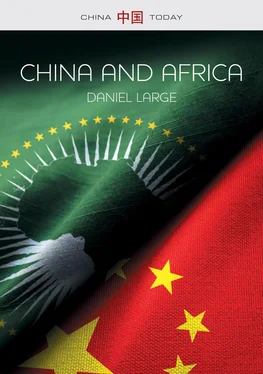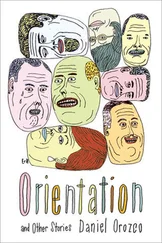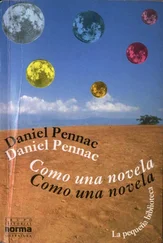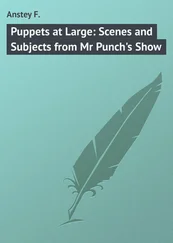ISBN-13: 978-1-5095-3632-0 (hardback)
ISBN-13: 978-1-5095-3633-7 (paperback)
A catalogue record for this book is available from the British Library.
Library of Congress Cataloging-in-Publication Data
Names: Large, Daniel, author.
Title: China and Africa : the new era / Daniel Large.
Description: Cambridge, UK ; Medford, MA : Polity Press, 2021. | Series: China today series | Includes bibliographical references and index. | Summary: "A concise and up-to-date guide to one of the most crucial modern geopolitical relationships"-- Provided by publisher.
Identifiers: LCCN 2021006334 (print) | LCCN 2021006335 (ebook) | ISBN 9781509536320 (hardback) | ISBN 9781509536337 (paperback) | ISBN 9781509536344 (epub)
Subjects: LCSH: Geopolitics--China. | China--Foreign relations--Africa. | Africa--Foreign relations--China. | China--Politics and government--2002- | Africa--Politics and government--1960-
Classification: LCC DS740.5.A34 L37 2021 (print) | LCC DS740.5.A34 (ebook) | DDC 327.5106--dc23
LC record available at https://lccn.loc.gov/2021006334
LC ebook record available at https://lccn.loc.gov/2021006335
by Fakenham Prepress Solutions, Fakenham, Norfolk NR21 8NL
The publisher has used its best endeavours to ensure that the URLs for external websites referred to in this book are correct and active at the time of going to press. However, the publisher has no responsibility for the websites and can make no guarantee that a site will remain live or that the content is or will remain appropriate.
Every effort has been made to trace all copyright holders, but if any have been overlooked the publisher will be pleased to include any necessary credits in any subsequent reprint or edition.
For further information on Polity, visit our website: politybooks.com
To Judith and Martin


Acknowledgements 
I have been intrigued by this subject since 1994–5, when I worked as an English teacher in Lishui, Zhejiang and met Ethiopian students in Nanjing, and especially since undertaking research in Kenya and Sudan from 2004, where among others I met entrepreneurs from Lishui and Zhejiang. This book relies on research in many places conducted since then; I acknowledge with great appreciation all whom I have met and learned from in the process. These include Philip Winter and John Ryle for asking ‘why China?’ in Athi River, near Nairobi, in April 2004. They also include Adekeye Adebajo, Seifudein Adem, Ana Alves, Kweku Ampiah, Ross Anthony, Tatiana Carayannis, Stephen Chan, Lucy Corkin, Richard Dowden, Neuma Grobbelaar, He Wenping, Jok Madut Jok, Mohaned Kaddam, Thomas Kellogg, Li Anshan, Liu Haifang, Roland Marchal, Emma Mawdsley, Angus McKee, Giles Mohan, Jamie Monson, Leben Moro, Sanusha Naidu, Shu Zhan, Elizabeth Sidiropoulos, Cobus van Staden, Julia Strauss, Jonathan Sullivan, Sun Xiaomeng, Thiik Giir Thiik, Tang Xiaoyang, Gai Thurbil, George T. Yu, Yu Ruichuan, Alex Vines, Wang Suolao, Zhang Chun, Zheng Yixiao, CEU colleagues and students who have taken my Politics of South–South Development in Africa course. I am indebted to Deborah Brautigam for her example and support since 2006, and the China–Africa Research Initiative at Johns Hopkins for granting me a Research Fellowship in 2019, when I was fortunate to work with Lina Benabdallah, and use of their graphs, in which Marie Foster kindly helped.
Special thanks are due to Julia Davies, Susan Beer and especially George Owers at Polity for their exceptional assistance, including during the COVID-19 pandemic. Posthumous thanks are due to the late Ian Taylor and his original recommendation, without which this book would never have happened. I am thankful to Thorsten Benner for his feedback on the initial proposal. I am grateful to this book’s anonymous external reviewers for providing considered and very helpful feedback on the complete draft. Others read chapters and offered useful advice, including William Mangimela, Yu-Shan Wu, Lina Benabdallah and especially Yoon Jung Park. I am particularly grateful to Chris Alden, for his invaluable guidance and support; Luke Patey for his generous help and quality feedback; Ricardo Soares de Oliveira, for unfailingly exceptional assistance; and Sarah Brockmeier-Large for feedback during challenging 2020 lockdown conditions. Any remaining errors, naturally, are my responsibility. This book owes considerably to my family’s support, and my biggest thanks go to Carlotta, Leo and Sarah.
Abbreviations 
ADB – African Development Bank
AfCFTA – African Continental Free Trade Area
Africa CDC – Africa Centres for Disease Control and Prevention
AIIB – Asian Infrastructure Investment Bank
ANC – African National Congress
APSA – African Peace and Security Architecture
ASEAN – Association of Southeast Asian Nations
AU – African Union
BRI – Belt and Road Initiative
BRICS – Brazil, Russia, India, China and South Africa
CARI – China–Africa Research Initiative (Johns Hopkins)
CCM – Chama Cha Mapinduzi party
CCP – Chinese Communist Party
CCTV – China Central Television
CDB – China Development Bank
CGTN – China Global Television Network
China EXIM – Export–Import Bank of China
CI – Confucius Institute
CIDCA – China International Development Cooperation Agency
CNPC – China National Petroleum Corporation
DFID – Department for International Development (UK)
DRC – Democratic Republic of Congo
EAC – East African Community
EU – European Union
FDI – Foreign Direct Investment
FOCAC – Forum on China–Africa Cooperation
FRELIMO – Frente para a Libertação de Moçambique
G20 – Group of 20
ID-CCP – International Department of the CCP
IDP – internally displaced person
IMF – International Monetary Fund
MFA – Ministry of Foreign Affairs
MINUSMA – UN Multidimensional Integrated Stabilization Mission in Mali
MOFCOM – Ministry of Commerce
MOU – Memorandum of Understanding
MPLA – Movimento Popular de Libertação de Angola
NEPAD – New Partnership for Africa’s Development
NDB – New Development Bank
NGO – Non-governmental organization
OECD – Organization for Economic Cooperation and Development
PLA – People’s Liberation Army
POC – Protection of Civilians
PRC – People’s Republic of China
RMB – renminbi
SAIIA – South African Institute of International Affairs
SEZ – Special Economic Zone
SGR – Standard Gauge Railway
SOE – State-owned enterprise
SWAPO – South-West Africa People’s Organization
TAZARA – Tanzanian–Zambian Railway Authority
TICAD – Tokyo International Conference on African Development
UK – United Kingdom
UNCTAD – UN Conference on Trade and Development
UNGA – UN General Assembly
UNHRC – UN Human Rights Council
UNSC – UN Security Council
Читать дальше















